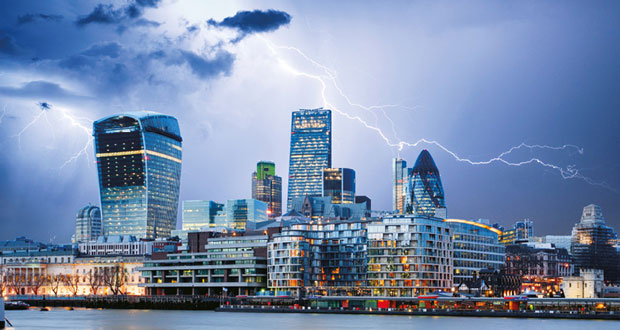 As the drive for sustainability in business grows, Ruth Williams of Astutis explains how environmental training can help organisations deliver an eco-blueprint to drive a more sustainable future
As the drive for sustainability in business grows, Ruth Williams of Astutis explains how environmental training can help organisations deliver an eco-blueprint to drive a more sustainable future
Climate change is a hot topic. This summer’s wild fires have been engulfing not only the warmer parts of Europe and the globe but here in the UK. In July temperature readings soared to 40.2C. It’s no surprise that the onus is on not just governments but also companies to do more and strive towards net zero carbon emissions.
A 2022 summer YouGov Poll in the UK showed the total number of people worried about climate change and its effects increased by 12 per cent, in the space of just three months, with the 67 per cent of those interviewed who are worried about climate change – being mirrored by international surveys.
To meet the challenges that lie ahead people are expecting the promises made by countries at the COP26 summit in Glasgow last year to be put into place.
We are facing a climate emergency that requires an urgent change in how we do business. The industrialised world is having an increasingly negative impact on the delicate ecosystem, which is teetering closer to the edge as time goes on. Britain’s latest record-breaking heatwave is likely because of climate change related to human activity.
As the UK is warned to prepare for more extreme hot weather, primarily it will be businesses that will deliver net zero targets. Educating and retraining the workforce holds the key to developing a more sustainable future and reduced carbon emissions. For example, having detailed knowledge of equipment performance will increase asset longevity.
TRAINING ADVANTAGE
Training to save the planet is the mantra of Astutis. The training provider offers a range of industry-recognised courses, designed by the Institute of Environmental Management and Assessment (IEMA) , that are dedicated to supporting businesses to address sustainability issues and transform the way you work. Tailored learning options for maintaining a sustainable workplace include virtual classroom, online and on-site classroom courses delivered at the premises on a day of your choice.
As environmental events become more impactful and widespread, global pressures for the implementation of sustainability initiatives increases. Investing in training gives managers and employees the knowledge and skills to manage environmental issues, building confidence which can deliver sustainability at all levels.
Having skilled environmental leaders and professionals is a signifier that the company is investing in the future, and offers a credible source of knowledge in the business landscape. As laws and regulations are implemented, amended and revised, it pays to be ahead of the game.
Getting facilities up to scratch and having a workforce that is safety savvy is vital for businesses to minimise the risk of accidents and fatalities that could lead to stiff penalties. Now it’s also about preserving the environment. The cost of doing business in an unsustainable manner is likely to escalate in the years to come.
Environmental training courses are not only an investment in improving the performance of the business, without compromising on the ability to deliver goods and services, but in preserving the planet as well. It’s about adapting towards a more progressive and environmentally sound future to make the world a better place.
Companies are increasingly seeking help to guide them towards the elusive flagship target of net zero. Employees with the knowledge and skills to manage environmental issues can support organisations to help deliver sustainability at all levels. Being several steps ahead of the curve is a powerful stance.
The rewards for upskilling the workforce are numerous, particularly at management level, where skills and knowledge can be disseminated through the ranks. Giving a deeper understanding of the factors influencing the impact on the environment can penetrate through to board level, and be very persuasive in higher level decisions.
SOCIETAL ADVANTAGE
Environmental issues are no longer seen as the preserve of just the green minded. As the recent July 2022 YouGov poll shows, the public is increasingly concerned about the environment and the damage being done to it. Governments and business leaders are listening and taking notice, and making changes, but the goalposts keep moving.
Organisations with sustainable management systems tend to perform more successfully, earning the confidence from key stakeholders. This can positively impact new business, insurance premiums, staff morale and company image.
Investing in training adds value to your business and employees, reducing staff turnover and building a culture of sustainability within the company. To push forward the sustainability agenda, match the leader with the skills needed to not only manage change but to guide and enthuse others with the same will.





